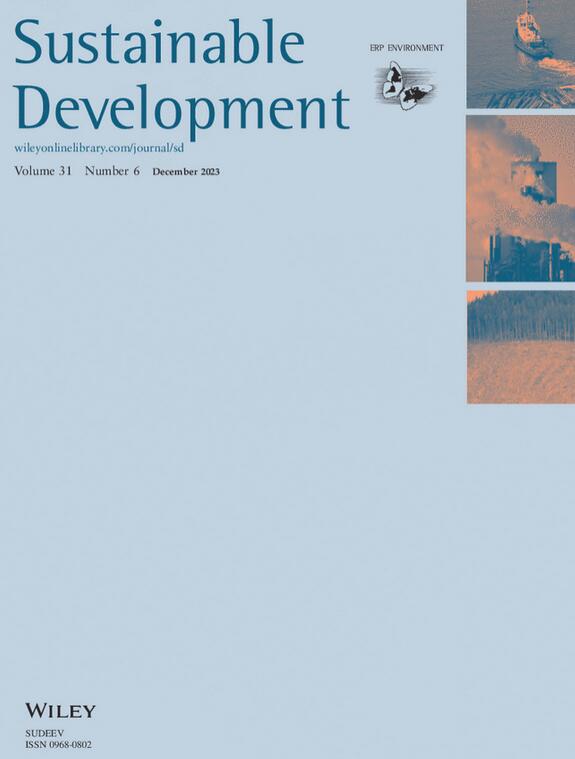非洲的性别经济包容、治理机构和经济复杂性
IF 9.9
1区 环境科学与生态学
Q1 DEVELOPMENT STUDIES
引用次数: 0
摘要
本研究探讨了性别经济包容对非洲经济复杂性的影响,以及治理机构对性别包容与经济复杂性之间关系的调节作用。分析基于集合 OLS 和系统广义矩法(GMM)估计技术,数据来自 2010 年至 2021 年间 34 个非洲经济体。分析发现了几个重要结论。首先,从最稳健的模型(即 GMM)来看,积极的协同作用是显而易见的,因为性别经济包容促进了经济复杂性,而治理动态进一步增强了性别经济包容对经济复杂性的积极影响。其次,无论采用哪种技术,性别经济包容与经济复杂性之间的关系都主要是正向的,且在统计上具有重要意义。第三,虽然治理机构与经济复杂性呈负相关,但它们在调节性别包容与经济复杂性之间的关系方面发挥了积极作用。第四,外国直接投资流入、贸易开放度和国际旅游业等因素被认为是非洲经济复杂性的有力推动因素,而人力资本的影响似乎相对较小。因此,本研究强调,在倡导性别包容政策和增加教育投资的同时,有必要进行机构改革,以提高治理的透明度、问责制和效率。本文章由计算机程序翻译,如有差异,请以英文原文为准。
Gender economic inclusion, governance institutions and economic complexity in Africa
This study examines the effects of gender economic inclusion on economic complexity in Africa, as well as the moderating role of governance institutions on the relationship between gender inclusion and economic complexity. The analysis was based on the pooled OLS and the system generalized method of moments (GMM) estimation techniques, with data from 34 African economies between 2010 and 2021. The analysis uncovered several important findings. First, from the most robust model (i.e., GMM), positive synergies are apparent because gender economic inclusion promotes economic complexity, and governance dynamics further enhance the positive effect of gender economic inclusion on economic complexity. Second, regardless of the adopted technique, a predominantly positive and statistically significant relationship was identified between gender economic inclusion and economic complexity. Third, it was observed that while governance institutions exhibit a negative relationship with economic complexity, they play a positive role in moderating the relationship between gender inclusion and economic complexity. Fourth, factors such as foreign direct investment inflow, trade openness, and international tourism were identified as potent drivers of economic complexity in Africa, while the impact of human capital appears to be relatively subdued. Consequently, the study emphasizes the need for institutional reforms to improve governance transparency, accountability, and efficiency, alongside advocating for gender‐inclusive policies and increased investment in education.
求助全文
通过发布文献求助,成功后即可免费获取论文全文。
去求助
来源期刊

Sustainable Development
Multiple-
CiteScore
17.30
自引率
11.20%
发文量
168
期刊介绍:
Sustainable Development is a publication that takes an interdisciplinary approach to explore and propose strategies for achieving sustainable development. Our aim is to discuss and address the challenges associated with sustainable development and the Sustainable Development Goals. All submissions are subjected to a thorough review process to ensure that our readers receive valuable and original content of the highest caliber.
 求助内容:
求助内容: 应助结果提醒方式:
应助结果提醒方式:


